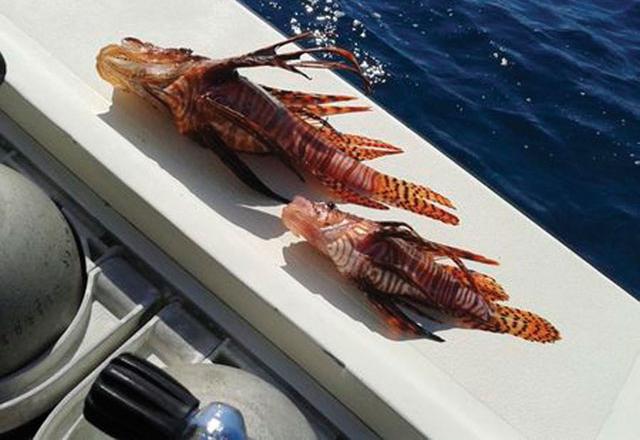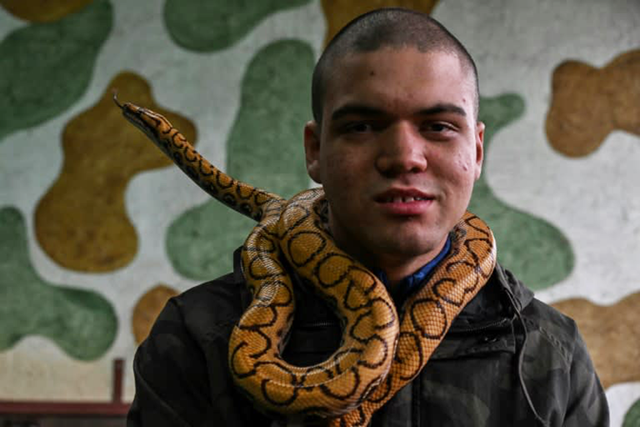You are here
Ready for python pizza? Florida diners get a taste
By AFP - Feb 02,2014 - Last updated at Feb 02,2014
FORT MYERS, United States — Alligator and frog have long been on the menu in Florida, but a new delicacy has slithered its way onto dinner plates in the US state.
A pizzeria now offers Burmese python meat on what it calls the “Everglades Pizza” — named for Florida’s vast national park, where the snakes are being hunted to protect the nature preserve.
“It was just to create talk about the shop and being creative and this thing literally just went viral,” says Evan Daniell, the owner of Evan’s Neighbourhood Pizza in the Gulf Coast city of Fort Myers.
“People talk about it all the time and whether it’s negative or positive, it really doesn’t matter because the fact is: We can make it and it’s delicious.”
So, the big question: what does it taste like?
“It’s good but a little chewy,” says Mike, a tourist taking the python plunge from Minnesota.
“It tastes like chicken but chewier,” his wife Becky adds.
Daniell admits that python meat “can be gamier”. The chef tenderises the slabs of snake meat by marinating them for several hours. They are then sliced thinly into what he calls “snake slivers”.
Before laying it onto the pizza, making sure “each slice has a piece of python”, Daniell pre-cooks the snake in the oven for a few minutes.
“There is some pink into the snake, and as it turns white, it will be done,” he explains.
Despite its steep price tag of $45, the “Everglades” pizza certainly has its fans.
Daniell’s pal Mike Gookin says he came up with the idea of using the snake meat to spice up pizzas after seeing a news report on the python problem in the Everglades.
The pizza also features alligator sausage and frog legs. Both are native to southern Florida. The pythons are definitely not, but they are everywhere.
“There could be thousands or tens of thousands of Burmese pythons in the wild here,” explains Roberto Torres, a field officer with The Nature Conservancy.
The snakes can measure up to six metres long and they are believed to have made the Everglades their home after being released by their owners.
“They get them as pets and when they get too big, they release them here,” Torres says, his feet deep in the mud of the wetlands near the suburbs of Miami where pythons have been spotted regularly.
Burmese pythons have no known predator in Florida, so they sit atop the food chain in their new home. As a result, environmental experts like Torres fear their presence could end up threatening biodiversity in the Everglades.
“It’s a perfect habitat for the snake — it’s wet, there is plenty of food… They’ll eat anything they can catch — birds, fish, mammals, cats, dogs,” Torres says.
To raise awareness about the python invasion, chefs in Miami have held several events with python on the menu along with other non-native species.
But current food safety regulations do not allow the invasive snakes captured in Florida to be slaughtered and processed regularly to be sold in restaurants.
As a result, Daniell’s python meat is not local.
“I buy it frozen from a wholesaler who imports farmed python from Vietnam,” the restaurateur explains.
Related Articles
MIAMI — Enrique Galan is seldom happier than when he disappears deep into the Everglades to hunt down Burmese pythons, an invasive species t
In a reef just off the popular USS Kittiwake dive site in Grand Cayman, hunters armed with spears seek out lionfish — an invasive species so destructive that authorities want them caught and served up as a tasty dish.
SAO PAULO — A yellow-and-brown boa constrictor wraps itself around David de Oliveira Gomes’s neck like a scarf, but the 15-year-old Br

















